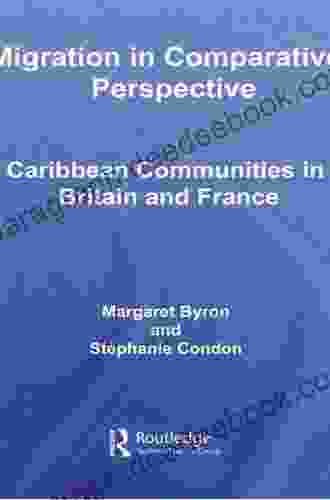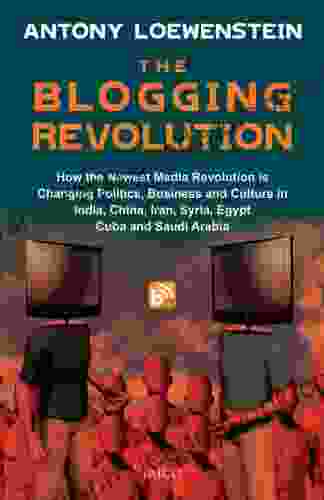Migration in Comparative Perspective: Key Concepts and Theoretical Approaches

Migration, the movement of people across geographical boundaries, is a global phenomenon that has been shaping societies for centuries. The study of migration has become increasingly important in recent years as scholars and policymakers seek to understand the complex causes, consequences, and implications of human mobility.
4.8 out of 5
| Language | : | English |
| File size | : | 1480 KB |
| Text-to-Speech | : | Enabled |
| Screen Reader | : | Supported |
| Enhanced typesetting | : | Enabled |
| Word Wise | : | Enabled |
| Print length | : | 482 pages |
Comparative perspective is a valuable tool for studying migration, as it allows researchers to examine the similarities and differences in migration patterns and experiences across different countries and regions. By comparing different cases, scholars can identify common factors that drive migration, as well as the unique factors that shape migration in specific contexts.
Key Concepts in Migration Studies
- Migration: The movement of people across geographical boundaries, typically for the purpose of establishing a new residence.
- Immigrant: A person who moves to a new country with the intention of staying there permanently.
- Emigrant: A person who leaves their country of origin to live in a new country.
- Remittance: Money that migrants send back to their home countries.
- Diaspora: A group of people who have left their home country and settled in a new country, but who maintain strong ties to their homeland.
Theoretical Approaches to Migration
There are a number of different theoretical approaches to the study of migration. Some of the most common approaches include:
- Neoclassical economics: This approach focuses on the economic factors that drive migration, such as differences in wages and job opportunities across countries.
- Social network theory: This approach emphasizes the role of social networks in migration, arguing that migrants are more likely to move to places where they have friends or family members already living.
- New economics of migration: This approach combines elements of neoclassical economics and social network theory, arguing that migration is a rational decision made by individuals and households in response to economic and social factors.
- Political economy: This approach focuses on the role of political and economic structures in shaping migration patterns, arguing that migration is often driven by global economic inequality and political conflict.
- Cultural geography: This approach examines the cultural factors that influence migration, such as the desire to move to a place with a similar culture or language.
Comparative Perspectives on Migration
Comparative research on migration has identified a number of important similarities and differences in migration patterns and experiences across different countries and regions.
Similarities:
- Migration is a global phenomenon that affects all countries and regions.
- Economic factors are the primary drivers of migration.
- Social networks play an important role in migration.
- Migration can have both positive and negative consequences for sending and receiving countries.
Differences:
- The volume of migration varies significantly across countries and regions.
- The composition of migration flows varies across countries and regions, in terms of age, gender, education, and skill level.
- The policies and practices that govern migration vary across countries and regions.
- The experiences of migrants vary across countries and regions, in terms of their economic, social, and political integration.
Policy Implications
The study of migration in comparative perspective has a number of important implications for policy and practice. By understanding the complex causes and consequences of migration, policymakers can develop more effective policies to manage migration and to maximize the benefits and minimize the costs of migration.
some of the key policy implications of the comparative study of migration include:
- The need for a global approach to migration: Migration is a global phenomenon that requires a global response. Countries need to work together to develop policies that manage migration in a humane and sustainable way.
- The importance of economic development: Economic development is one of the most effective ways to reduce migration pressures. Countries need to invest in education, job creation, and other programs that help to improve economic opportunities for their citizens.
- The need to address the root causes of migration: Migration is often driven by conflict, persecution, and other forms of adversity. Countries need to address the root causes of migration in order to create a more just and equitable world.
- The importance of migrant integration: Migrants need to be integrated into their new societies in order to reap the full benefits of migration. Countries need to provide migrants with access to education, healthcare, and other essential services.
- The need to respect the rights of migrants: Migrants are human beings who deserve to be treated with dignity and respect. Countries need to uphold the human rights of migrants, regardless of their legal status.
Migration is a complex and multifaceted phenomenon that has a profound impact on societies around the world. Comparative perspective is a valuable tool for studying migration, as it allows researchers to examine the similarities and differences in migration patterns and experiences across different countries and regions. The study of migration in comparative perspective has important implications for policy and practice, and can help us to better understand the challenges and opportunities of migration in the 21st century.
4.8 out of 5
| Language | : | English |
| File size | : | 1480 KB |
| Text-to-Speech | : | Enabled |
| Screen Reader | : | Supported |
| Enhanced typesetting | : | Enabled |
| Word Wise | : | Enabled |
| Print length | : | 482 pages |
Do you want to contribute by writing guest posts on this blog?
Please contact us and send us a resume of previous articles that you have written.
 Page
Page Chapter
Chapter Text
Text Story
Story Magazine
Magazine Paragraph
Paragraph Bookmark
Bookmark Shelf
Shelf Glossary
Glossary Foreword
Foreword Preface
Preface Synopsis
Synopsis Annotation
Annotation Footnote
Footnote Codex
Codex Classics
Classics Library card
Library card Biography
Biography Autobiography
Autobiography Memoir
Memoir Reference
Reference Encyclopedia
Encyclopedia Dictionary
Dictionary Thesaurus
Thesaurus Narrator
Narrator Character
Character Librarian
Librarian Stacks
Stacks Study
Study Lending
Lending Academic
Academic Reading Room
Reading Room Special Collections
Special Collections Study Group
Study Group Thesis
Thesis Dissertation
Dissertation Storytelling
Storytelling Reading List
Reading List Book Club
Book Club Theory
Theory Mary Higgins Clark
Mary Higgins Clark Barry Ahern
Barry Ahern Jan Fennell
Jan Fennell Mark Aldrich
Mark Aldrich David M Nienow
David M Nienow David Gelernter
David Gelernter Wilfredo Gonzalez
Wilfredo Gonzalez Stella Ghervas
Stella Ghervas Kern Singh
Kern Singh Baohui Xie
Baohui Xie Mark Van Clay
Mark Van Clay William Bearden
William Bearden Remi Gicquel
Remi Gicquel Lydia Usen
Lydia Usen Esther T Jones
Esther T Jones Dave Freer
Dave Freer Leah Greenberg
Leah Greenberg Christopher J Ryan
Christopher J Ryan Richard L Collins
Richard L Collins Lee Jackson
Lee Jackson
Light bulbAdvertise smarter! Our strategic ad space ensures maximum exposure. Reserve your spot today!
 Jack ButlerFollow ·16.1k
Jack ButlerFollow ·16.1k Chinua AchebeFollow ·4.4k
Chinua AchebeFollow ·4.4k Juan RulfoFollow ·15.3k
Juan RulfoFollow ·15.3k Steve CarterFollow ·12k
Steve CarterFollow ·12k Gavin MitchellFollow ·17.6k
Gavin MitchellFollow ·17.6k Stan WardFollow ·10.7k
Stan WardFollow ·10.7k Sam CarterFollow ·2.2k
Sam CarterFollow ·2.2k John GreenFollow ·12.9k
John GreenFollow ·12.9k

 Ricky Bell
Ricky BellThe Marriage: An Absolutely Jaw-Dropping Psychological...
In the realm of...

 Ray Blair
Ray BlairDiscover the Enchanting Charm of Budapest and Its...
Nestled in the heart of...

 Tyrone Powell
Tyrone PowellHuddle: How Women Unlock Their Collective Power
Huddle is a global movement that empowers...

 Grayson Bell
Grayson BellThe Coin Story of the Holocaust: A Symbol of Hope and...
In the depths of the...

 Virginia Woolf
Virginia WoolfFolklore Performance and Identity in Cuzco, Peru: A...
Nestled amidst...

 Dylan Mitchell
Dylan MitchellThe Enduring Love Story of Héloïse and Abélard: A Tale of...
An Intellectual Passion In the heart of...
4.8 out of 5
| Language | : | English |
| File size | : | 1480 KB |
| Text-to-Speech | : | Enabled |
| Screen Reader | : | Supported |
| Enhanced typesetting | : | Enabled |
| Word Wise | : | Enabled |
| Print length | : | 482 pages |












